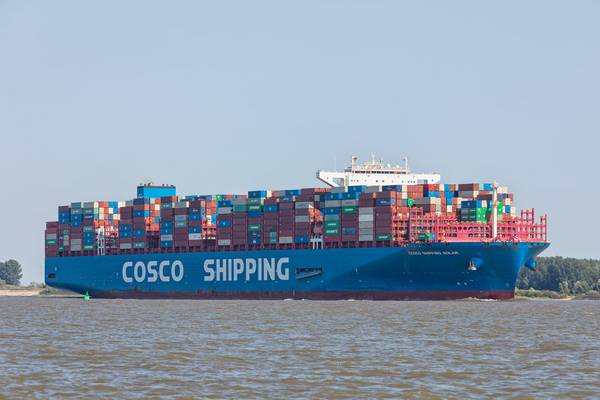
The Trump administration said on Thursday it would pursue negotiations with China over its dominance of shipbuilding and ocean logistics as it formalized plans for a one-year pause on U.S. port fees on China-linked vessels as part of a broader deal to reduce trade tensions.
The U.S. Trade Representative's office said in a Federal Register notice that it would pause for a year starting November 10 all punitive actions against China resulting from its "Section 301" unfair trade practices investigation. USTR added that it would accept public comments on the matter on November 6 and November 7.
The 12-month reprieve on an estimated $3.2 billion annually in U.S. fees for large Chinese-built vessels sailing to U.S. ports was among the agreements reached in South Korea by U.S. President Donald Trump and Chinese President Xi Jinping in late October. Also paused were 100% tariffs on ship-to-shore cranes and container intermodal chassis for trucks.
"Pursuant to this deal, the United States would suspend for one year, beginning on November 10, 2025, the responsive actions taken in this investigation," USTR said in the notice. "The United States also would negotiate with China pursuant to Section 301 regarding the issues raised in this investigation."
The notice gave no details about how the negotiations would begin, or what the objectives would be. It said that the U.S. would continue its own efforts to revitalize domestic shipbuilding, including through discussions with key allies and partners.
A USTR spokesperson could not immediately be reached for further comment. China's embassy in Washington also did not immediately respond to a Reuters query.
China also had agreed to pause its own retaliatory fees on U.S.-linked ships as part of the Trump-Xi de-escalation agreement. Hawaii-based ocean shipping company Matson said on Tuesday that it had paid $6.4 million in port fees to China since they were implemented on October 14.
State-owned container line COSCO is the Chinese shipper most exposed to U.S. port fees, which analysts said could add up to $1.5 billion annually.
(Reuters - Reporting by David Lawder; Additional reporting by Lisa Baertlein; Editing by Jamie Freed)




